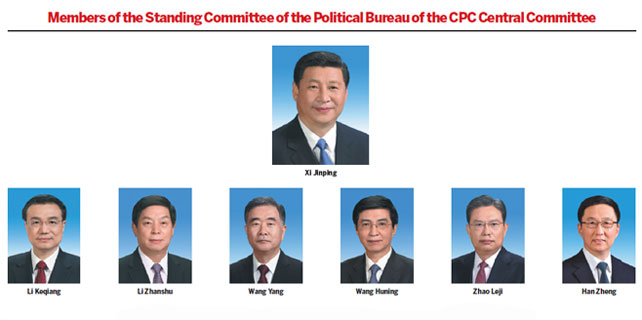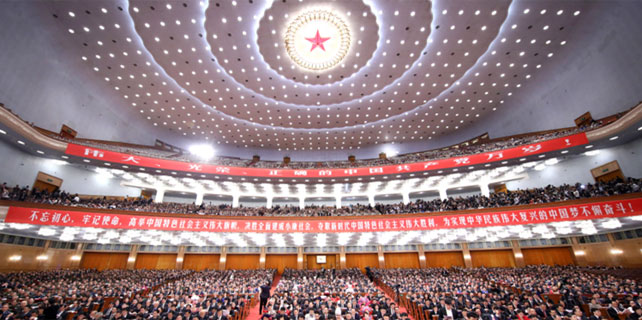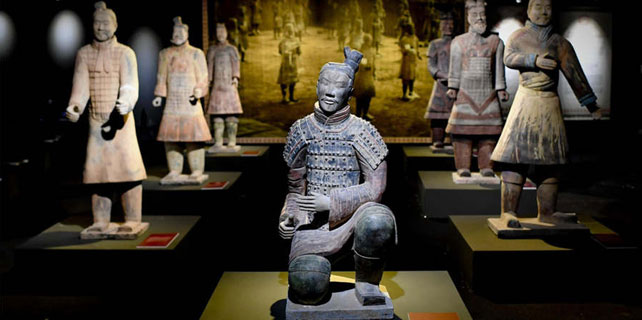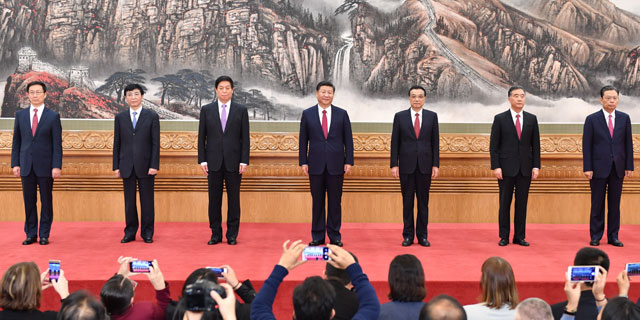How will the anti-graft campaign unfold after the 19th CPC National Congress?
Feedback from the ground:
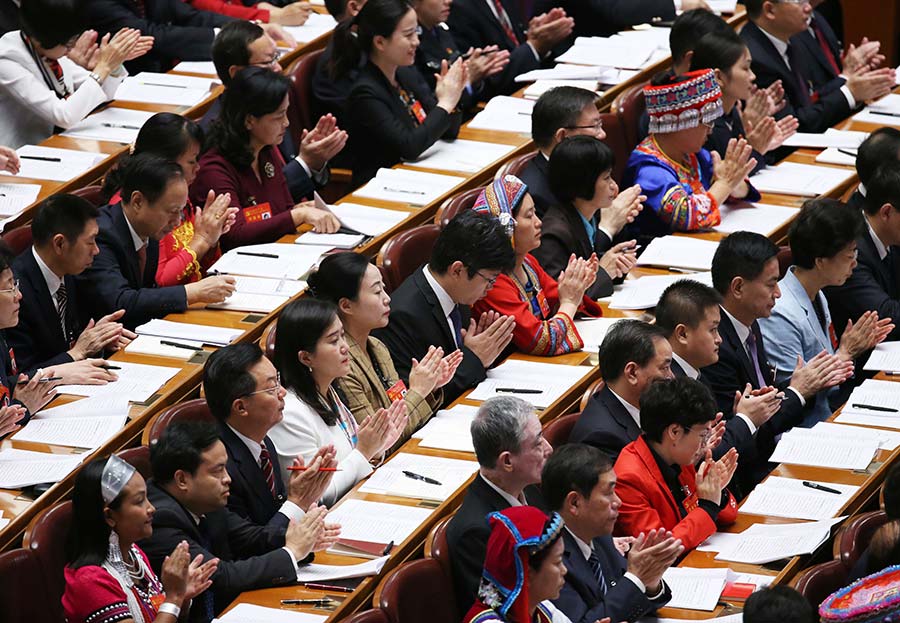 |
|
Delegates to the 19th CPC National Congress applaud as they listen to the report at the Great Hall of the People in Beijing, Oct 18, 2017. [Photo/Xinhua] |
The report makes it clear that the Party "will impose tight constraints, maintain a tough stance and a long-term deterrence, punish both those who take bribes and those who offer them", which shows the Party's determination to fight against corruption.
--Kong Changsheng, member of the Standing Committee of CPC Henan Provincial Committee, head of CPC Henan Provincial Committee's organization department, delegate to the 19th CPC National Congress
Working for the adoption of national anti-corruption legislation is an inevitable requirement of improving the legal system of Socialism with Chinese Characteristics, and advancing the modernization of governance system and capability. It combines national laws and the Party's rules and regulations, forming a synergy for fighting against corruption.
--Gao Bo, political researcher at the Chinese Academy of Social Sciences
Improving Party and State oversight system is the Party's top-level design to strengthen fight against corruption under the new situation. The problem-based countermeasure will be very effective.
--Wang Xu, professor of law at Renmin University of China
Since the 18the CPC National Congress, we have felt revolutionary changes in Party conduct.
--Ling Jiefang, historical novelist and delegate to the 19th CPC National Congress
The report says that the Party "will strengthen deterrence so officials dare not be corrupt, strengthen the cage of institutions so they're unable to be corrupt, and strengthen their vigilance so that they have no desire to commit corruption". This is a process from outside restraint to inner self-consciousness, achieved with both strict supervision and firm ideal and conviction.
--Wang Yukai, professor at Chinese Academy of Governance
(Sources: Xinhua)




